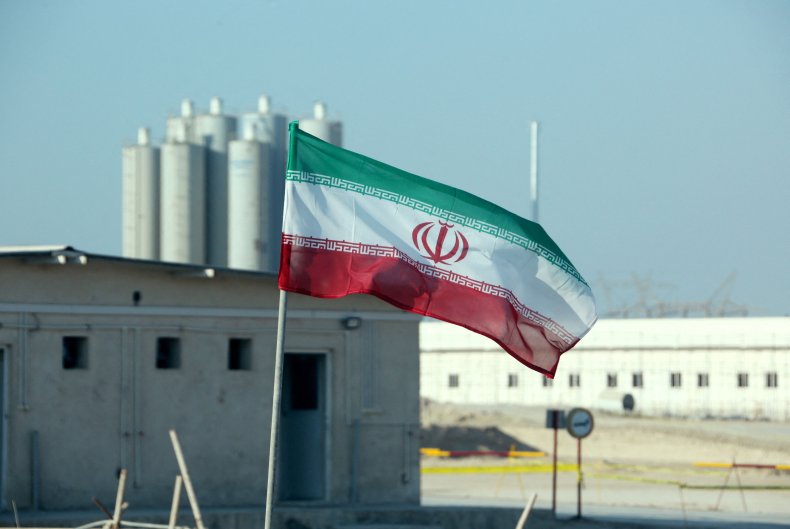Iran Hails ‘More Than Doubled’ Nuclear Enrichment Despite Int’l Backlash
Mohammad Eslami, head of the Atomic Energy Organization of Iran (AEOI) announced on Saturday that the Persian Gulf nation’s uranium enrichment capacity “more than doubled” despite continuous international concerns about the country expanding its nuclear capabilities.
Eslami said during a meeting with Iranian parliamentarians that the capacity for the enrichment of uranium in Iran increased as a result of the strategic action plan that was passed by the parliament in 2020, the Islamic Republic News Agency reported.
The AEOI chief praised the parliament for passing the law. He said that it helped protect Iran’s national interests and increased uranium enrichment to a level twice as high as the total capacity since the beginning of the nuclear industry in Iran, according to Tasnim News Agency.

Photo by ATTA KENARE/AFP via Getty Images
The Iranian official said that energy generated by the nuclear plants has benefited the country economically, decreased fossil fuels consumption, and addressed environmental issues.
Iran’s development of its nuclear capacity would also reportedly help other sectors such as agriculture and medicine, according to Eslami. The Iranian official had previously announced in October that the capacity to generate nuclear electricity in Iran is expected to hit 10,000 megawatts without depending on assistance from other countries.
However, Iran has received significant backlash for its nuclear ambitions. In October, Robert Malley, the State Department’s special envoy to Iran, discussed the U.S. approach to Iran and its nuclear capabilities at an event organized by the Carnegie Endowment. Malley said that the U.S. will continue to use diplomatic means to prevent Iranian nuclear armament.
Still, Malley also said at the time that the U.S. would not rule out “a military option if necessary” to prevent Iran from obtaining a nuclear weapon.
“There is nothing now that we are not doing because we are thinking of the potential of a potential nuclear deal in the future,” Malley added, according to CNN’s Jennifer Hansler. “We’re not tying our hands because of this hope that someday there’ll be a deal.”
Meanwhile, in an interview with Fox News host Sean Hannity on Thursday, incoming Israeli Prime Minister Benjamin Netanyahu said that Iran’s quest for nuclear weapons “threatens the entire world.”
He contended that it’s important to continue to block Iran from expanding its nuclear capacity “to ensure the peace of our region, the peace of the world.” He also said that Arab leaders began to change the way they see Israel “not as their enemy but as their indispensable ally to curb Iranian aggression.”
The U.S. along with China, France, Russia, the United Kingdom, Germany and the European Union were involved in creating the Joint Comprehensive Plan of Action (JCPOA) in 2015. That agreement aimed for Iran to scale back its nuclear enrichment and development programs, in exchange for sanctions relief and international investment.
Though the deal was confirmed in July 2015, former President Donald Trump withdrew the U.S. from that deal in May 2018. When Trump authorized the killing of Iranian General Qassam Soleimani in January 2020, Tehran said that it will no longer comply with the JCPOA. But the country was more open to renegotiating after President Joe Biden came to office.
However, there has been “no movement” on the U.S. rejoining the deal since “late August, early September,” according to Malley’s October comments. He said the U.S. will not place too much focus on it since there is little progress being made.
“Nothing’s happening on the nuclear deal so we’re not going to spend our time, waste our time on it, if nothing’s going to happen,” Malley said at the time.
Newsweek reached out to the White House and Sahar Nowrouzzadeh, an Associate with the Project on Managing the Atom at the Harvard Kennedy School’s Belfer Center for Science and International Affairs, for comment.

